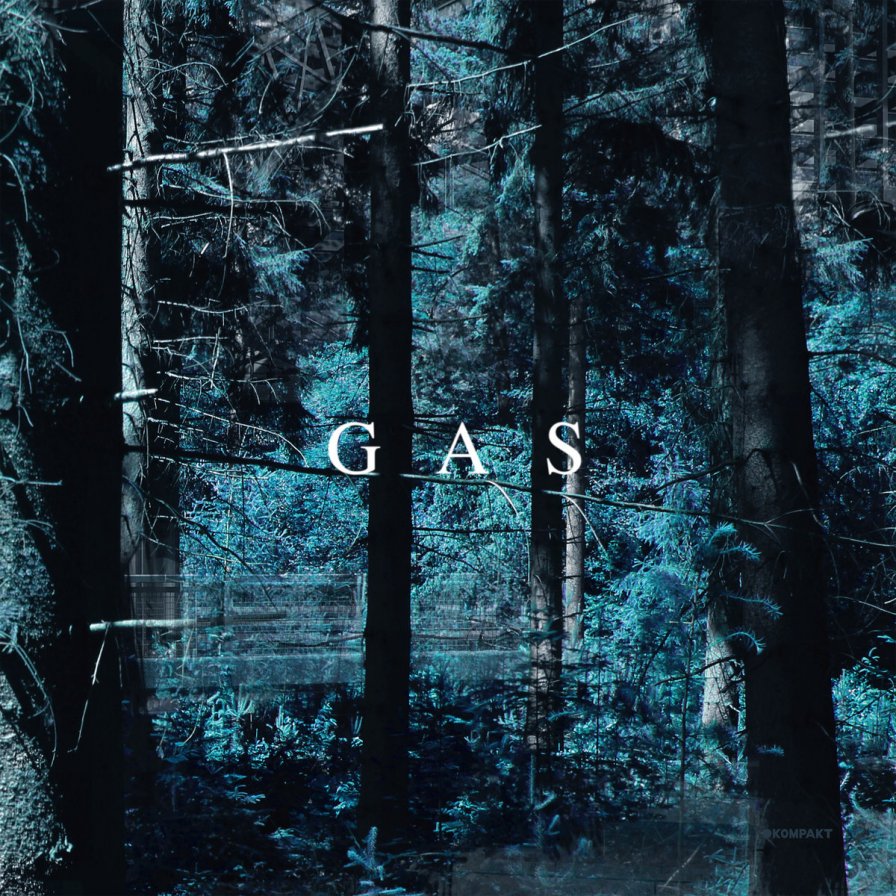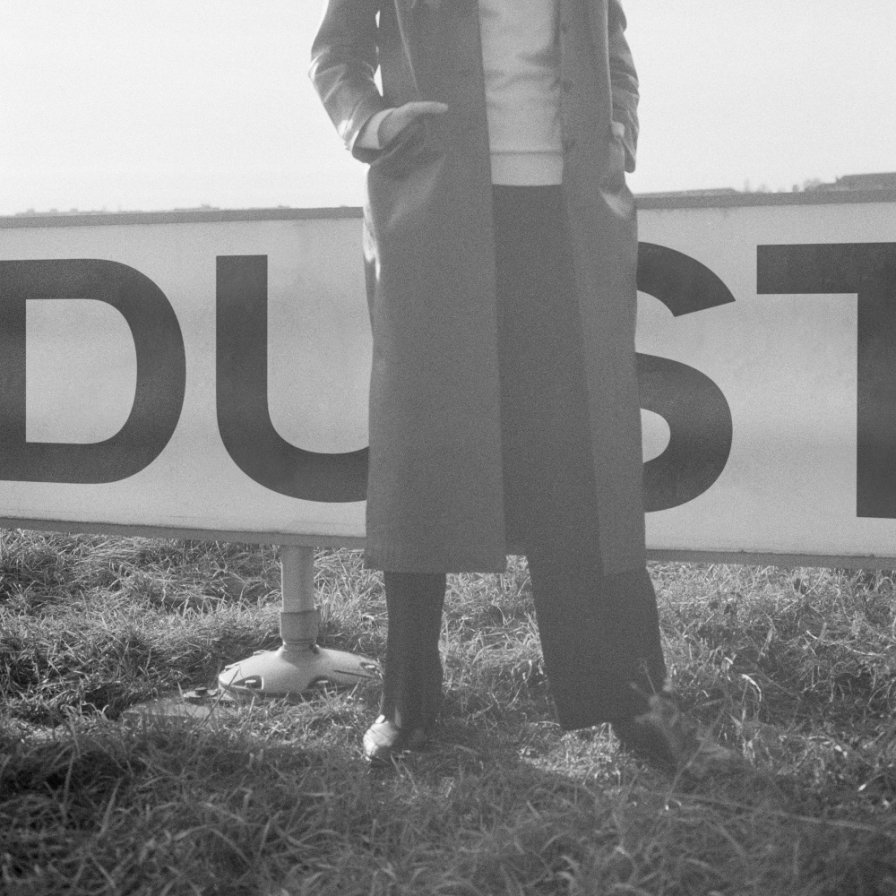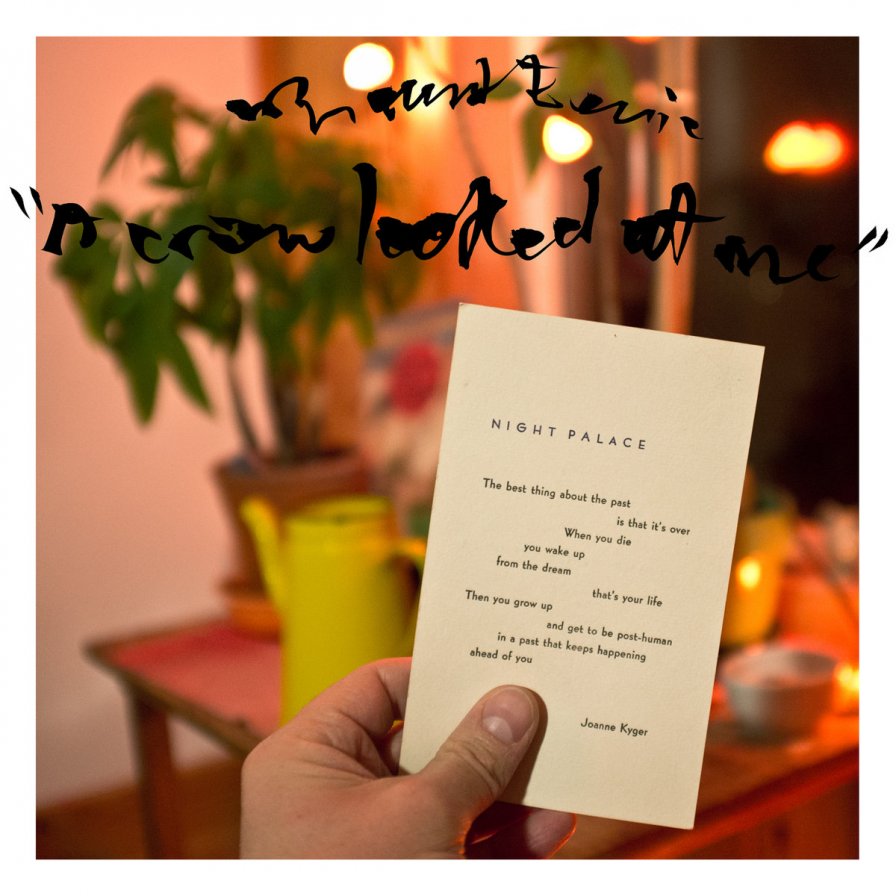We celebrate the end of the year the only way we know how: through lists, essays, and mixes. Join us as we explore the music that helped define the year. More from this series
Do we still move in 2017? In a year when our AI systems were becoming citizens and shut down for inventing new languages, when our social media interactions were weaponized with unprecedented precision by political campaigns, when our very DNA could be encoded with malicious software, what does movement even look like in such an information-rich world? A string of data waiting to be computed? If an average of 68 Facebook “likes” is all it takes to predict skin color with 95% accuracy, then it’s not hard to imagine a future when our movements find their significance not in expressing our desires, but in being algorithmically expressed.
But how much data do we create when we cry? What does data look like when we are fake laughing? The musical movements of 2017 offered both a glimpse into our mental health and possible ways to reconcile our technopolitical anxieties with our overbearing, untenable individualism. Our favorites this year didn’t offer solutions to our waking nightmares — why should they? — but they helped remind us that, while life is fragile (Ryuichi Sakamoto) and death is real (Mount Eerie), recovery is still possible (Björk). Amidst our fantasiis (MHYSA), dreams (Twin Peaks), and distorted reflections (Bell Witch), even our electronic music felt like ethereal gestures toward renewal, whether it was through reflexive neo-songs (Klein), a dance in the smoke (Actress), or an effervescent faith (Yves Tumor).
And our movements were many. For every articulation of bodily devotion (Perfume Genius), ruthless loyalty (Kendrick Lamar), and tender obsession (Lorde), there was a subversion of spacetime (Toiret Status), revelatory Euclidean algorithms (Konrad Sprenger), and circuitous experimentalism (Playboi Carti). For every instance of emotional nourishment (Charli XCX) and critique of power structures (Richard Dawson), there was a desire to build community “in the face of absolute fragmentation” (Club Chai Vol. 1) and to try “new forms of living in a deteriorating world” (Lawrence English).
We left 2016 already bruised and exhausted, and while 2017’s shitshow can’t be completely undone, we are not beyond repair. It’s easy to question our obsession with music, especially when our audio-editing tools find parallels in a gene-editing tool like CRISPR, when the noise of our time could be silenced in a flash by Minecraft scammers, when our hybrid musics coincide with hybrid wars and whatever the fuck these are. But this year’s sounds continued to expose and counter our artifices and mythologies in compelling ways, and we should count ourselves lucky that there was even a semblance of healing in both the ambience and the losses of 2017.
Our movements, especially in this small corner of the internet, remain vital — necessary, even. What will our movements look like in 2018? Hopefully something a little better than this.
50
Perfume Genius
No Shape
[Matador]

In the music video for “Slip Away,” our introduction to the fourth Perfume Genius album, Mike Hadreas ran through a slideshow of soft-focus fantasies, away from a cast of hapless villains and toward an implied happy ending. Like a dream, the detail seemed both blurred and crudely exaggerated; the antagonists’ faces painted in caricature, overcome by Hadreas dashing through the exploding set with his fairytale bride. Most of all, for an artist who dealt nothing but shade on 2014’s comeback “Queen” — all vicious contours and slicked-back hair, lips frozen in a permanent sneer at American heteronormativity — “Slip Away” presented a palette that was warm, dynamic, and deliriously playful. From start to finish, the intersections of love and death that played out across the record (see: auto-erotic asphyxiation tribute “Die 4 You”) never felt cheapened by the gauzy nightdress they came swaddled in, but elevated by its vaudeville sexuality. Even the posthumanist tropes that swirled through the album were rendered with joy; at the death, No Shape swooned at the spirit’s liberation as readily as it lamented the body’s failure.
49
Sun Araw
THE SADDLE OF THE INCREATE
[Sun Ark/Drag City]

Strike the stage. Think of the desert as a set, an empty set, one in waiting. Potential, not unrest. Perhaps an inclination. Look around, it’s barren and stable, tough to soil. (A grain of sand ain’t nothin’). Here it is: total poiesis (There’s a snake’s scale on that bird’s tail); the verbal rendering of all forms present by no trick greater than insistence (Ain’t that a sight). The presentation of a gift: a hidden giver, a lost recipient (…ain’t nothin’). Nowhere to go, cannot go beyond all that is present unless presented (There is a chute). It’s a classic place, an old joke, plain enough. A cowboy story, “as futuristic as possible.” Dehydration, waiting for a sign. It’s a trip, an experience, a losing time. “IT’S MORNING. HARNESS IN. STRAP UP. RIDE ON OUT BRAVE INTO TODAY.” My tongue is a chair, and I like that.
48
Tara Jane O’Neil
Tara Jane O’Neil
[Gnomonsong]

In the summer, the light warms and deepens everything natural. Summer sunlight makes shimmering greens seem deeper until the end of August, but come December, even at high noon, the empty branches look washed out; the air looks washed out. In 11 gentle songs, on a self-titled album, Tara Jane O’Neil tucked that deep, warm summer light into her pocket. In fits and starts on tracks like “Flutter,” “Kelley,” and “Blow,” she raised it slowly over the horizon. “The path forward is well lit,” she sang on “Metta,” and even on the harshest winter days, it is, thanks to her druidic calm. The path unfolds like a clean line traced by the afternoon across a bedroom floor. Follow it to keep inside its warmth. Look up sometimes, but never too directly or for too long without those heavy-duty and professionally inspected eclipse glasses. This album was inviting and elusive. It pulled us in close but never let us forget how fragile our little human retinas are. And then it dipped out of sight.
47
Nmesh
Pharma
[Orange Milk]

Nmesh’s plunderphonic monolith Pharma was many things: a chemical cocktail for a future nightlife, a hallucinogenic trip through the dark fractures of 2017 and its nostalgic histories, a waking nightmare catalyzed by vaporized pop cultural memories. Pharma went beyond simulation, toward the tangible archaeological rescue of base cultural artifacts, offering a digital rendering of the remnants of human primitivity that felt especially appropriate in this historical moment. The melodic duality of “White Lodge Simulation,” the psychedelic brutality of “Mall Full of Drugs,” and the grotesque fantasy of “Acid Baby” were all the stuff of cosmic horror, but channeled through aggressive grooves and hooks that can only charm and intoxicate. Through Pharma’s many tributaries, Nmesh took on a whole society’s obsession with the artificial and gleefully liberated us.
46
Colleen
A flame my love, a frequency
[Thrill Jockey]

The events surrounding the creation of Colleen’s seventh studio album, A flame my love, a frequency, were as heavy as it gets. Colleen’s real name is Cécile Schott, and she is from France. She happened to be in Paris, getting a viola bow repaired the night of the 2015 terrorist attacks. For weeks after, as the songs started coming, the looming specter of death wouldn’t leave her mind. Yet, for how overwhelmed she felt, the album she created was full of light and hope. The viola de gamba that created the backbone of her 2015 comeback album Captain of None was replaced here by a focus on the Critter and Guitari Pocket Piano and Septavox synthesizer, as processed by a Moog delay pedal. The minimal compositions were recorded live, without vocal overdubs, fostering a sense of personal immediacy amid the waves of synthetic sound. A flame my love, a frequency remains an album of essential contrasts.
45
Bell Witch
Mirror Reaper
[Profound Lore]

“Mirrors are the doors through which Death comes and goes. Look at yourself in a mirror all your life and you’ll see Death at work like bees in a hive of glass.” Jean Cocteau’s 1950 cinematic adaptation of the Orpheus myth has its hero journey through mirrors to the underworld in a vain attempt to save his beloved Eurydice. Mirror Reaper, Bell Witch’s somnambulant third album, echoed that film’s themes of dreamlike movement, distorted reflections, and an obsession with death. After former drummer Adrian Guerra died during the writing and production of Mirror Reaper, current members Dylan Desmond and Jesse Shreibman created an album that alternated between an elegiac dirge and its angrier mirror image, a mournful march showcasing that death is but an inverted reflection of life. The power of Mirror Reaper lay in its world-building; consisting of a single 83-minute track, the album forced the listener to meet it on its own terms. Through repetition and a loud/quiet dynamic, Bell Witch lulled us into a slumber in which the voices of the dead spoke to us again and then violently shook us awake to remind us of our own fetid mortality.
44
Toiret Status
Nyoi Plunger
[Noumenal Loom]

Ingestion and invisibility, undo our reverse cornucopia; plunge and unplug, let loose the profusion. Microscopies swell to burst in bubbleshine, but don’t forget to meet the man, the man himself, who cans all that laughter. We’ve got lyrical machines, all pistons firing and tiring, building all those silly swirls of collapse and sweettoothing their hardware hollow.
The arc of the priest’s staff leaves a sparkling trail of emoji — snap, swing, zing, plonk. Things move fast and then they move faster and then they don’t. Thank you, thank you, grazie. The trunk sort of explodes, splitting loose and scattering the grid, leaving queues all out of sort, and cutting the stone with recrudescence. While you can help it, never stop iterating += 1.
TFW when the POP ROCKSTM pass the blood-brain barrier
I caught the cows tangoing on the roof, clapping and clacking their hooves hailstone-style on the corrugate. A toast to every comet that explodes overhead! Drum rolls please, but we shouldn’t cater to bourgeois enjoyment. Quiet, the show is set to start…
Elsa coughs a light cough and foghorns:
Dedesnn nn rrrrr, Ii Ee, mpiff tillff toooo,
Dedesnn nn rrrrr, Ii Ee, mpiff tillff toooo, tillll
Dedesnn nn rrrrr, Ii Ee, mpiff tillff toooo, tillll,Jüü-Kaa?llll,Jüü-Kaa?
Roshi, scepter at his side spilling smileys, nods. The crowd detonates.
And what would you call that act?
43
Julie Byrne
Not Even Happiness
[Ba Da Bing!]

Not Even Happiness is Julie Byrne’s truth, honesty, desire, and memory laid bare. It’s a woman accepting the universe, chaos, and herself through a calm that’s almost hard to take in. It’s airy. It’s layered. It’s self-love in motion. It’s an attempt to discern a place in the cosmos. It’s Grouper out of the mist, Angel Olsen on Xanax. It’s pure consonance. It’s about moments both meaningful and mundane — a cup of coffee in the morning while looking out the window — but they’re actually all important if you care about how you live. My friend who barely talks to me anymore sent me the record in April; I played it on repeat for five hours that day, and I’ve kept listening to it ever since.
42
Pharmakon
Contact
[Sacred Bones]

I spend more time than I’d like in meetings centered on teaching middle school students empathy. It’s something I care deeply about, but these meetings often make me doubt that adults (especially those in positions of interacting with children) are actually competent models of reaching out and making positive contact. These meetings feel a lot like how most people would describe Pharmakon’s music: chaotic, headache-inducing, dissonant. I don’t think it’s an accident that what “kids these days” are bumping always seems, by adult standards, alienating. “At least it makes them feel something,” right? Truth is, kids are really good at “feeling things”; adults have just had more practice turning feelings into ulcers. Margaret Chardiet hasn’t forgotten how noise can make us feel things. Contact was what empathy (feeling what other people feel) really sounded like: generative, alleviating, and cathartic, qualities that may be better taught through unadulterated sound than through rudimentary recalibration. So next staff meeting, I’m playing “Nakedness of Need,” hoping that it will expand our discussion on how we can build better connections between us. If it doesn’t work right away, at least it will have made us feel, and that’s something.
41
Amnesia Scanner
AS TRUTH (MIXTAPE)
[Self-Released]

AS TRUTH (MIXTAPE) was as engrossing as it was adverse. With migrating noise and tones hammered out along pulsing rhythms, the mix was the out-loud dialogue of the desires and fears of machines laid flat. Of IP addresses beating like thumping veins. Of processors moaning and crying toward nothing. It was like the open wounds of aux cords oozing their creamy innards, reliving their nightmares on repeat, doled out into dulled infinity. This year has been tough, but out of strife and constant defeat comes a readmitted commitment to past truths. Processing grief and anguish is necessary for growth. Let’s just hope the machines have a better world in the works than what we have created for ourselves. Amnesia Scanner was here to help the wires deliver sensitive content with distance and grace, along with a mirror to gaze at our own created horror.
40
Kara-Lis Coverdale
Grafts
[Boomkat]

Montreal resident Kara-Lis Coverdale returned in 2017 with her most fascinating and poignant work to date: her first solo vinyl release titled Grafts. Over the course of its 22 minutes of playtime, Coverdale expertly layered various textural and melodic ideas, molding them into a whole that inspired reverence and wonderment in the listener. The piece drew inspiration from contemporary electronic music, seminal minimalist compositions, and church music, as overlapping muted piano flourishes, dense organs, gentle drones, and fluttering synths blossomed into fascinating meditations on texture and melody. As the third — and most peaceful — movement (“Moments In Love”) slowly drifted to its conclusion, there was tangible sacredness in the air. Grafts was spiritual, intimate, contemplative, and completely alive. And in 2017, it was a stark reminder that beauty exists, even amidst the ever-present chaos and confusion.
39
Actress
AZD
[Ninja Tune]

To enter such a realm, of life between being and nonbeing, of sound surging with numinous intensity and laboriously weaving itself into some vague, half-formed nightmare… The horror of reality, the limitations inside of genres like “dance” and “club” and outside: icy white silk of pouring rain and a backdrop of bleak office buildings. A ghost in the making, a figment, a cash register, a pistol, a zombie. People say that I am in a city, but I suspect I am amongst thousands of mountains. Expressive force over representational legibility, with the snowcaps amongst us. Slabs of marble dragged onto raw drips; flings of dust conjuring a far-away vision of the Dragon Gate, and in its fairy tale therein occurs a dance battle, or maybe a rap battle, or actually a 4/4 beat created from synths of yore, heavy with retrofuturism and insinuating something, something deep. So we go out, to the warehouses, to the studios, to the grottos, to the basements, with a question to ask: Do you remember real life?
38
Upgrayedd Smurphy
HYPNOSYS
[R-CH-V]

HYPNOSYS’s Giger-inspired cover art depicted Upgrayedd Smurphy morphing into something like an apex predator, xenomorph style. Smurphy’s beats were tighter and more austere on this album, driving the melodies while integrating classic post-punk texture into modern beat work. This approach effectively aligned her music with recent works by Andy Stott and Zomb while still sounding nothing like them. It was music for driving at night through morose, dilapidated cities. Dim-lit neon bulbs flickering out, exits collapsing in the rearview. The malaise of modern living, all connected yet lost (hypnotized, even) in reconciling that this was all actually meaningless. The whole thing felt appropriately bleak, the product of how awful our world has become. If we have to go on, let’s become something else. It’s already happening all around us. Upgrading to extraterrestrial.
37
Pan Daijing
Lack 惊蛰
[PAN]

Pan Daijing herself described Lack 惊蛰 as an “opera,” suggesting listeners were to consume the work as performance rather than music proper. Immediacy and vulnerability, then, were core tenets of the work: Lack 惊蛰 was an intimate process to be witnessed, not only by the listener, but by Daijing herself: “I saw myself being this absurd, mad person ‘acting’ out the sounds.” Taking listeners through various modes of sound affect, Daijing’s arsenal included experiments with verbal intonation/inflection, disquieting moans, aggressive synth loops, and arrhythmic percussion. Still, the album was less about sonic extremes and more an exploration of what noise — and perhaps the avant-garde at large — can achieve by forcing us into spaces that make both listener and performer more visible, allowing us to express and embody sincerity in an era rife with irony, superficiality, and untruths. Fundamentally, Lack 惊蛰 instilled awareness: the simple suggestion that we are here, we are feeling, we are real. In the years to come, art and performance in a similar vein will become paramount in creating spaces where we are free to feel vulnerable and consider our emotions and experiences as they relate to the human condition.
36
Richard Dawson
Peasant
[Weird World]

Peasant detailed the lives of the 6th- and 7th-century peasantry during the violent unification of the Kingdom of Northumbria in present-day Northeastern England. Daunting stuff for the historically disinclined. But as TMT writer Sam Goldner pointed out, this obscure theme counter-intuitively allowed Richard Dawson to address very current, and very pressing, political concerns. By giving voice to otherwise mute historical figures — soldiers, prostitutes, beggars — Dawson implicitly critiqued the power structures that allow these characters’ oppression to persist today. Wary of drawing any explicit connections between his music and recent politics, Dawson nevertheless remarked that “some of the things that are described in the songs are not too different from some of the things that occur today in a supposedly civilized society.” And what is described in the songs was bleak: the world of Peasant was violent, superstitious, corrupt, and all too recognizable. Dawson’s powerful Geordie bark and discordant acoustic guitar brought this world arrestingly to life. The intensive historical research and dissonant experimentalism of Dawson’s earlier albums now seem like necessary steps toward creating Peasant’s sprawling narrative, one of those rare documents that perfectly encapsulates an artist’s approach. In retrospect, it’s obvious Dawson had to make this album, and that he had to make it in 2017.
35
woopheadclrms
Meeting Room + Rare Plants
[Ukiuki Atamata]

It took a few listens to pinpoint what made woopheadclrms’s Meeting Room + Rare Plants so compelling. Putting aside the overwhelming amount of samples and otherworldly qualities hidden in the pitched-shifted mutant vocals, there was an underlying presence. It was almost like a secret, whispered between the barrage of sound. The smooth transitions between sounds, the gentle jokes, the memes, the chirping of birds, the conversations between friends, the jungle-like atmosphere: it all made for an experience akin to those overly romanticized depictions of death we see on television, where the character’s life flashes before their eyes, millions of moments rushing back toward a light that had shined for decades, maybe even a century, separating the unknown pre-birth world and the halcyon ocean that lay ahead. All the detailed subject matter blurred and the memories seemed randomly chosen, but when pieced together, they formed not a grandiose message, but feelings of warmth, solace, maybe even alleviation.
34
Giant Claw
Soft Channel
[Orange Milk]

There are few rockist tropes as worn-out as the breakup album. Many of rock & roll’s big names have one among their canonical works (Blood on The Tracks, Here My Dear, Rumours, The Boatman’s Call, Sea Change, Vulnicura, etc.). Is Soft Channel “a breakup album for the internet age”? Cutesy rhetorical clutches aside, the album indeed found Keith Rankin exploring the fragments that circle one’s head in the aftermath of a sentimental crisis, the mix of frustration, disappointment, relief, loneliness, regret, and everything else that threatens to overwhelm you in such episodes. And if Rankin’s post-digital approach to plunderphonics, his brutalization of modern pop and appropriation of the remains, suits the anxiety buildup that comes with a breakup, Soft Channel wasn’t just a trip through despair. The later part of the album pushed for a sense of closure, with melodies becoming recognizably tame and R&B vocals acquiring luminescent shapes. Striving for serenity might be naïve, but a measure of peace existed in letting memories and whispers dilute in the past. After all, we will all find a home in there eventually. Even awful exes and sanctified breakup albums.
33
Konrad Sprenger
Stack Music
[PAN]

Stack: With Stack Music, Konrad Sprenger put the authorship of music in flux. The music was authored by a system: user, interface, instrument. The user directed the interface to make choices for patterns of sound. Despite a complete oversaturation of questions regarding artificial intelligence in electronic music, Sprenger’s process stood monolithic in its reversal of “man vs. machine” rhetoric. Here, the system’s authors shared an economy of sound.
String: Every sound came directly from a computation of resistance; the string resists its labor. The physicality/artificiality of the string was totally elusive, creating an audible treachery of sound. The string sounded like a train.
Stanza: 7:01 / 18:56 / 18:07 / 6:28
Space: The Euclidean algorithm, here applied to rhythm, creates an interplay of space. The computer-author finds space and generates sound to fill it. Sprenger’s longtime influence and New York minimalism counterpart is Ellen Fullman, but where Fullman’s string instrument creates space, Sprenger’s devours it. When there is no space left, Stack Music sounds the most beautiful.
Syncopation: “I can make syncopation sound like death.” –John Fahey.
32
Khaki Blazer
Didn’t Have to Cut
[Hausu Mountain]

Even Khaki Blazer felt it this year. Taking a respite from the whiplash frenzy and wormhole plunderings of his sample-heavy, hyperaccelerated pinball methodology, Pat Modugno launched an uncharacteristically patient, low-key textural investigation on Didn’t Have To Cut. Through lateral pathways into parentheticals and ellipses, Khaki Blazer plunged into the hearts of his samples and discovered something like a universal glitch, stuttering alongside elastic harmonies and oblique slippages, plopped onto the cement like putty and smeared into the shape of a rainbow. Our bodies twitched, our eyes glazed over. Time was a bar of soap. Space was up for debate. “My battery’s almost dead. Do you have a charger?” We looked down, and Khaki Blazer was trapped in the grid, crying. He had flowers in his hand. The flowers were melting. It was a cartoon!
31
Young Thug
Beautiful Thugger Girls
[Atlantic]

Wending his way gently into the crevices of a rich and sensuous realm of pop, Young Thug used Beautiful Thugger Girls as a faultless freeze frame that captured his increasing rise to stardom and the social misdemeanors that come with it. His observations were as astute and as resounding as ever, rapping about everything from his difficulties at school to family loyalty to individuality. Each cut carved fresh insight into the complicated world of a rising artist as he continued to veer away from the mainstream while flirting unabashedly with it. Although it might not have been as crass as Barter 6 or as uncompromising as JEFFERY, Thug made sure that his summertime mixtape proved to be one of his most captivating releases to date, and for that we were truly grateful.
30
Lawrence English
Cruel Optimism
[Room40]

You don’t hear the sounds so much as you feel them, like a distant mudslide slowly moving your way, when everything stalls and a moment seems to last forever. Sharing its title with Lauren Berlant’s 2011 monograph, Cruel Optimism addressed the same affect theory concern of an individual’s optimistic attachment in an increasingly compromised society. Across Cruel Optimism, English was able to push his own boundaries, combining freeform ideas with captivating instrumental sequences, conceived, at times, by ”happy accidents.” With repeated listens, Cruel Optimism became unshakable, its scope and imagination conveying a divine, indeterminate place and time. Picking out moments to describe the whole feels Sisyphean, as the whole was simply an intense masterclass in sound sustention. Cruel Optimism embraced Berlant’s theory of “crisis ordinariness,” but sought to experiment, to try new forms of living in a deteriorating world. In doing so, this release saw this extraordinarily talented composer deliver his most beautiful, pathos-laden, and, above all, human masterpiece yet.
29
CupcakKe
Queen Elizabitch
[Self-Released]

By turns lurid and lucid, CupcakKe had the stamina to out-pace, out-rap, and out-fuck just about everyone this past year, and Queen Elizabitch was her glistening testament to the fact. Whether she was raiding your shit (“Quick Thought”), preaching body positivity (“Biggie Smalls”), or fucking in the back of an Uber (“Cumshot”), there was little room for the sacred in her urgency and diligence. Put simply, this was 100% profane to its very core, jettisoning any notion of radio-friendliness or crossover appeal in her perverse outlook; if I could point to any one rhyme as a suitable M.O., this might be it: “Name anything freaky and you know I’m ‘bout the shit / Only time I’m not on the dick is when I’m ‘bout to shit” (“CPR”). And, consistent with her meticulous impulse toward what’s real, Queen Elizabitch was bookended by two of the most thoughtful cuts anybody could muster in 2017, introducing and capping off a tale of personal triumph amidst societal anguish. Long live the Queen — true to her word, the 33rd of the month never came.
28
Léo Hoffsaes & Loto Retina
Early Contact
[PERMALNK]

The nuclear family of Early Contact includes father, mother, son, and soon-to-be second child, who, in this perfect narrative, would be a daughter. The first time we heard the pregnant mother, our narrator, speak, her voice inspired a surge of strings to burst forth from her swelling heart and belly and announced two of the album’s three scores: the mother’s internal monologue, written by Bastien Vairet and performed in the distinctly superficial style of true-blue American artifice; and the orchestral arrangements that soundtrack her thoughts with extreme, almost Disney-like pathos. But a third, subtler score was also present, though in suspension, and sounded its poignant piece through muddy, atmospheric synths and electro-acoustic compositions that seemed to come from far off or, more likely, from deep within. It seeped like a vapor through the album’s amniotic fluid — unformed sometimes, as in in the beginning of “11 am”; and eternal other times, as in “2 pm.” The tension created by the three tracks spoke to the whole absurd theater of this life-in-the-day-of, and even though we were listening to the scripted thoughts of an archetype, I couldn’t help but wonder how our own thoughts do so churn.
27
Big Thief
Capacity
[Saddle Creek]

SNOWFALL,
a word like an other, a root transformed by circumstances. Words are containers for wonders, imagined expressions of the world we see. In words like in snows, the world is temporarily transfigured, a familiar thing under bright fabric. Sound and snow transfix; “you won’t recognize your house.”
MYTHOLOGICAL,
almost, legends of our every days, we walk in the feel of falling skies. The dog pulls, happy haywire in the shifted smells of these streets. In snows like in songs, silhouettes of the world resound from under a momentary veneer, a changed air. Somewhere, tree’s leaves. Somewhere, a dead deer under these new white mounds. “Will you recognize the iris of the body?” Half-familiar home, a streetlight of us stepping, “forgetting the word “dog” and looking at that naked animal and getting much closer to it and how it is different to you.”
CAPACITY
bridges could-know and have-known, fabrics worlds and traumas in folk and rumbles. Capacity contains all our breaking engagements, all our dog-walk joys, the paths that fade from the steps that can’t be taken back. Worlds break but songs make, myths for forward. “You’re all caught up inside/ But you know the way.” Hearth and hurt, coma and home, Capacity takes and holds, getting us much closer to us than we can without it.
26
Various Artists
Club Chai Vol.1
[Club Chai]

How do you build something communal in the face of absolute fragmentation? Is there a way out of the hell of singular ready-made identities, something that allows one to carry solidarity further than individual interests? Club Chai Vol. 1 sought answers to these questions while bridging the gap between the local and the global to find a common tongue, regardless of the variety of struggle. The comp managed to locate a solidarity that progressed beyond common interests of a single identity group, a solidarity of simply caring for others who are different. Rather than artificially creating common ground by imposing an overarching theme or artistic direction, the record embraced the differences of its co-creators, their varied backgrounds, their unique musical styles. This created a sonic world wherein FOOZOOL’s tense “AZAT Ազատ” felt right at home next to the gently sung “BLACK WAX” by SPELLING. Every contribution to the compilation was irrevocably different, and yet it never felt incoherent or arbitrary. In its disregard of borders, be they political or artistic, Club Chai Vol.1 brought to the fore voices routinely excluded by the West and the faux-liberalism of middle-class uniformity. It succeeded by forging out of them a harmony that felt complete and unafraid, destructive toward the existing rulesets and intent on creating new spaces of possibility.
25
Slowdive
Slowdive
[Dead Oceans]

The news is grimmer every year. We find ourselves at the crossroads in modern society: party over country, corporations over people, division over unity. We fall neatly into categories and find ourselves embracing or rejecting what is reported about our adopted identities. So, here we are, staring at our shoes, deciding where next to stride. I chose the light, where it seems Slowdive have been hiding for two decades with open arms, hoping society came to them naturally. We didn’t, so they’ve reemerged and are urging us toward the inner peace of doing the right thing. Slowdive has broken my shackles, and I’m no longer tethered to characters typed out on a screen that may or may not speak to my demeanor, message, and identity. I’m transcending it all, leaving the orange psychic shadow behind. We have better things to do with our time and energy, and it begins with a deep dive into the return of Slowdive and our roots of making the change we want.
24
Chino Amobi
PARADISO
[UNO NYC/NON WORLDWIDE]

An understated appeal of the circus or carnival lies in the elevation of “characters” that we otherwise neglect to acknowledge in our daily lives, but whom we know exist in the shadows. PARADISO offered a similar promotion, although in lieu of so-called “freaks” with biological conditions, the musical sideshow centered around a plethora of artists affiliated with Amobi’s NON WORLDWIDE label, which arrived on the scene a few years ago figuratively offering the mic to a variety of underrepresented. Elysia Crampton recited Poe with variations on a couple of tracks, and the title track had a veritable litany of artist features, which began with the defiant and possible mission statement: “I’m not an animal.” Cages were for sure lifted accordingly on an overall musical level, and the whole of the release showcased the chaotic stew that possibly represents our current societal state better than vanilla and holidays sales ever did. Some of us still need a blatant welcome, despite a distant organ.
23
Various Artists
Twin Peaks (Music from the Limited Event Series / Limited Event Series Soundtrack)
[Rhino]

It wouldn’t be an exaggeration to say that, for most of us at TMT, the most important event of the year (particular stages in the ongoing degeneration of the globe notwithstanding) was not primarily musical, but televisual. But, of course, in the new Twin Peaks series, as with anything involving David Lynch, the musical side could never have been less than crucial, whether as a conduit of signification and significance, as punctuation, or as a peculiar kind of marginalia to the show. The original series left innumerable traces on the wider world, detectable ever since in television, in film, in our favorite music — in our very perception of things. Even detached from the accompanying pictures and story, the soundtrack has always possessed an almost uniquely powerful ability to evoke a polyvalent kind of nostalgia. Now, disoriented by novelties, the old is given strange new salience and sent down an entirely renewed confusion of interpretative possibilities. Twin Peaks has grown, expanded to fill voids it had left behind, and engendered new ones. In the years since its first incarnation, it found points of entry into our own world; this year, ours found a way into its. Could “Laura Palmer’s Theme” ever mean the same thing again?
22
Jlin
Black Origami
[Planet Mu]

Watch it fold. A few things, maximized, then steady. Singularity: each sound an organelle, tiniest units of tissue, collectively defining the tissue, gradually forming the organ, one formal unit, one after the other, track by track, slowly shifting. It doubles back, flips the script, keels over. Origami. “The fold serves as an apt metaphor,” says Prathna Lor on Renee Gladman’s “Calamities.” “The fold is at once additive as it is subtractive. Folds, as they increase in number, generate more and more possibilities, and completely reimagine the space within which they are reconfigured. Space is reconfigured, (re)constructed, diminished, and translated along new and different planes.” It sounds good. “[It] feels knotted; like being in a mouth.” It speaks from another, from within another (mouth), it moves the body. “What becomes necessary is not the untangling of its density but the tracing out of its textures, surfaces, and shapes. […] It is therefore not in the name of teleology but of experience that we must seek a phenomenology, an erotics, a contouring of writing.” Working with steel, working the body, working toward elegance. Refining, tempering, deliberate, shifting.
21
Björk
Utopia
[One Little Indian]

Recovery’s tricky. You know it’s been rough, don’t worry, it’s fine now, etc., but shit can and will dive down again. The cycle repeats, and Utopia was an abstract pop frolic through it. Having endured the breakup that inspired 2015’s Vulnicura, Björk, again partnered with producer Arca, pondered the confounding trials of emotion. Against frustrating soundscapes that allowed industrial thuds and ethereal flutes to coexist, Björk cooed and wailed over the sensory/biological overload of first kisses, brokenness, and the responsibility of guardianship. Mysterious noises scattered, never to be heard again. Flames and birds crackled, and the question of their authenticity added to the experience; we have our fantasies of love and pain, but what is the reality? By the end, having addressed tactile, spiritual, and digital communication, she reached beyond herself, bore the world’s angst, and protected its lantern, even though it has prompted her to shift shapes. Guardedly optimistic, Björk faced an increasingly indifferent world, so maybe her hope will falter, but that was Utopia’s point. It was a gorgeous mess, a contradictory album by/for contradictory minds, and its enigmas will persist.
20
M.E.S.H.
Hesaitix
[PAN]

“How did I become so stupid?,” Hesaitix asked, in sonic pursuit of a grotesque metamodernism. An anagram of “cathexis,” Hesaitix invested profound energy into the imponderable bloom — a bloom declared as “essence” by so many discredited philosophies — but a process rightly ignored by the Machine, just as the imponderable bloom of the grape was ignored by the manufacturers of artificial fruit. M.E.S.H. tensely collected the grapes of wrath on record, pooling expired audio into cisterns filled with birdsong, vision, electricity, and pulsing acid-shade hues of burnt purple-gold. The hybrid result was an organic/plastic sound with half-utility as an armored “club record,” while still half-fantasizing a dilapidated attempt at introverted worldbuilding: “This is my world…but how did it become so stupid?” Over-rendered, fleshy, but recast rigidly into stark obsidian, M.E.S.H. sketched hopeful boundaries for form, as if creating lumpy sculptures out of a constantly melting red clay. There was no real reconstruction happening here, only ephemeral reactions that merely complemented M.E.S.H.’s previously deconstructionist audio agenda. Here, there was only the search and the reveal — a revelation in the sound of void-wind cuffing the plaza.
19
Chief Keef
Thot Breaker
[Glo Gang]

They’ve been asking for the old Sosa since he was 17. But how can you miss the old Chief Keef when he can be the pill that you gotta take, your night shift, your light-year, the sun in your rainy weather, your listener, your boat? Your Number 1 Pop Star, your “LOVE.” He’s changed (“Slow Dance”), and he’s stayed the same (“My Baby”), turning his Gucci/Wayne smear resplendent. Thot Breaker arrived overdue and yesterday, a pop time slide, a HNDRXX from the future, in 2017, after the honestly equal albeit unmastered Two Zero One Seven. Anamoly (Almighty So), phantasmagoria (lil glo). The old Sosa’s ttttturbo made us go “Whoa,” then his voice took us inner, outer, and higher. How far is a light-year?
18
GAS
Narkopop
[Kompakt]

Maybe it shouldn’t be surprising that, even after a 17-year pause between albums, GAS felt, in essence, unchanged. Wolfgang Voigt’s most sublime musical outlet has always felt more like a natural phenomenon than a project, tied not to the passing of trends or eras, but to the epochal aging of the Earth itself. If that sounds grandiose, great — Narkopop was a giant piece of music, tall as sequoia and unapologetically huge in scope. And yet it was Voigt’s personal touch for turning his few ingredients into an entire world that stuck when the record ended — the wisps of fog-synth and floor tom, masterful in their ability to subtly play the human senses. The cap on a now 20-year experiment in opening ambience to its widest point, one hopes this is, for Voigt, just one of many trips back to the forest.
17
SZA
CTRL
[Top Dawg]

While Taylor stumbles through her deferred quarter-life crisis and Vagabon’s Laetitia Tamko stakes her claim in the socioeconomically monopolized realm of indie rock, Solána Rowe, d/b/a SZA, forged a middle ground between the two artists on CTRL. Her debut long-player after a string of EPs, CTRL channeled Swift’s narcissistic empowerment and tempered it with Tamko’s outspoken insecurity and tacit gender politics. Oscillating between off-the-cuff lyricism and carefully deliberated melodies, SZA located personal trepidation in the album’s stream-of-consciousness musings and discovered affirmation in its mantra-hooks. When she sang “Leave me lonely for prettier women/ You know I need too much attention for shit like that” on the blank-verse confessional “Supermodel,” it was a supplication to be proven wrong. And on the would-be capstone single “Drew Barrymore,” she asked confidently, knowingly, “Am I warm enough for you outside, baby? Is it warm enough for you inside me?” Rowe’s mother graced CTRL’s interstices with soundbites of maternal wisdom and exhortation, the most pertinent of which inaugurated the album: “That is my greatest fear: that if I lost control or did not have control, things would just be… fatal.”
16
DJ Escrow
Universal Soulja Vol. 1
[Self-Released]

Noise becomes encoded, gridlocked, parceled-out through repetition. "Who knows about this one?" On the heels of a year when the noxious sirens and gas of BBF was a 3D, maybe too-real thing, "summer mixtape" Universal Soulja Vol. 1 supplied an antidote to numbing, carceral ProTools, the blight of smoothness (a buffering and a buffing-out), a channelization of encoded angst. A scorched DJ Escrow cypher-and-gab served a blunt anti-cryptography.
15
Various Artists
Sounds of Sisso
[Nyege Nyege Tapes]

There were few more invigorating introductions to a sound in 2017 than the opening 20 seconds of "Baba Animata Natafuta Kiki" from Sounds of Sisso. Thudding drums, pitched-up vocals-as-melodies, and breakneck rapped lyrics tumbled outward, frenetic and elastic, announcing the arrival of "Singeli," a style that agglomerates, combines, and entangles music from across Tanzania. Released by the Uganda-based label (and studio and festival) Nyege Nyege Tapes, Sounds of Sisso was the product of producers Bwax, Sisso, Bampa Pana, and Yung Keyz Morento, as well as MCs Dogo Niga and Makavelli, whose spooling, pounding sonics operated simultaneously on the edges of several temporal planes. This was vertiginous, engrossing music, its drums snapping and feinting, its bass thrumming and hulking, its melodies chopped and looped. It roamed across effects and textures, letting light in one minute and sending the listener down fathomless rhythmic wormholes the next, the tracks' cramped spaces thoughtfully filled by the MCs' breathless bars and the mobile hands of its producers. If "Nyege Nyege is named after a Luganda word that means 'the feeling of a sudden uncontrollable urge to move, shake or dance,'" Sounds of Sisso repeatedly placed the listener in the midst of that feeling, on the precipice of its realization. And in that moment, when control had been wrested away, one's only response was to surrender to the dance.
14
milo
who told you to think??!!?!?!?!
[Ruby Yacht]

There was an intriguing duality between the title and contents of milo's who told you to think??!!?!?!?! Or perhaps a call and response, if you prefer. While the album's title might've evoked the threatening, manic taunt of a drill sergeant or other superego turned frighteningly corporeal, the album's poetry proffered quietly self-assured answers, like "Mom" or "Baldwin" or "Busdriver." It spoke to a continuing conversation, an obligation to add on. In one interview this year, milo noted that his last full-length, 2015's So the Flies Don't Come, was what finally proved to some naysayers that he could really rap. In other interviews, he identified rap as something he has always done, will always do, and must always do. Meticulously tooling his "school of thought” like a record store in the making, the Hellfyre Club pupil turned Ruby Yacht professor workshopped the hell out of this latest set, with tours and mixtapes and more and more still. We listened, and even if we didn’t directly see or hear the toil that went into these songs, we damn sure felt it.
13
Ryuichi Sakamoto
async
[Milan]

Drinking alone at the Park Hyatt Hotel in downtown Tokyo, lost and desperate, I had never heard async. Eating 12 large dumplings in Kyoto, unable to taste them, unable to think about anything beyond my inability to think about anything, I had never heard async. Later, in Hong Kong, insomnia settling in before the hospital stay, I had never heard async. I had never heard async, was still mere silhouette in the moments between my nightmares. When I did hear async, I became a bird and flew beyond the fire I’d lit, to a place where the line between music and lesson blurred. I found myself in a clearing made of music, a symphony that became physical space, revealing the “physical” as mirage. Places could be inhabited from anywhere. I imagined new ones, and I traveled to them. I chose not to speak. When I feared nothing so much as going back, I listened to async.
12
Various Artists
mono no aware
[PAN]

PAN’s mono no aware articulated its philosophy in furious gestures of peace and good will toward things. The featured artists attempted, in their own ways, to bottle up in one vessel their love and their sensitive openness to the world that must, of its nature, wash the loved away. Where artists like Yves Tumor and Malibu reprised their practice in recognizable form for the compilation, underground club heroes M.E.S.H., Oli XL, and Mya Gomez were encountered in a more pensive mood than usual. It was, after all, an “ambient” compilation, whatever that means. The seesaw of Kareem Lotfy’s “Fr3sh” was like an impossible mixture of unthinking fog and the clarity of contemplation, while AYYA’s “Second Mistake” was a melody of razor-sharp notes in superposition, ascending and unmoving, feeling a little like a Shepard tone. A similar sense of suspended animation was captured by Jeff Witscher’s “ok, American Medium,” which climaxed in a brassy, pseudo-acoustic cacophony, while curator Bill Kouligas’s own “VXOMEG” saw an overdriven whine through to the low, echoing hum of its self-immolation, each of the two domesticating noise and the discomfort for which it stands, absorbing them into a sublime framework. If mono no aware had a theme, it had to do with a movement that, while alien and transmutative like a passage from the world, remained firmly embedded within it. This year, the world and my thoughts grew loud, and I found no more perfect escape than in not escaping.
11
Felicia Atkinson
Hand In Hand
[Shelter Press]

The ominously rattling “I’m Following You” began the journey of Felicia Atkinson’s Hand In Hand, an album that delightfully balanced shaking paranoia with tranquilly restorative vibrations. She captured the sound of things shifting in a room where nobody was — haunted, humming, serene. Minimal, pulsing, pinging instrumentals were juxtaposed with disparate spoken segments — spooky, scattered phenomenological and ontological ruminations on plants, everyday objects, information, space, the empire, the universe, the fall. Language was there for the grasping, but it was deliciously slippery both sonically and in what was signified, such that sliding around without gripping too desperately for narrative was the best mode, letting it all drip and wash over us like a hot digital bubble bath. Things comported, stretched, and occupied weird little corners, dug deadend tunnels, inhaled, exhaled, froze, paraded softly. The soothing chimes and lost whispers of “Curious In Epidavros.” The sinister scraping and disappearing bass of “Monstera Deliciosa.” The barely-happening “No Fear But Anticipation,” wherein Atkinson’s concluding murmurs on desire, the future, and suffering supplied more peculiar pieces to a puzzle that was thrillingly unsolvable.
10
MHYSA
fantasii
[Halcyon Veil]

Somewhere between a strip tease and an ancient ritual dance, fantasii smacked us upside the head until the stars in our eyes started to fall into a kind of sacred rhythm. Calm and collected yet splitting at the seams, E. Jane’s reinvention as MHYSA took the diva theatrics to the next level, concocting a split personality as performative as it was intimate, one that begged for late-night rotation in some imagined club half-rendered through a laptop screen. Whether she was spitting sexting freestyles over formless noise or mumbling wounded confessions over beats that could fuck up your car’s audio system, MHYSA’s willingness to contradict was exactly what made fantasii’s slanted vision so pointed. Both empowering and self-questioning, MHYSA pointed toward a future of black feminine freedom, where jewel thief Doris Payne was held on the same level as Harriet Tubman or Beyoncé, and strength and weakness were understood to be two versions of the same slippery human thing.
09
Playboi Carti
Playboi Carti
[Interscope/AWGE]

For a record that defined the year in rap, Playboi Carti was something of an anomaly. First of all, it was a commercial mixtape — 15 whole tracks with a discernible sequence and signs of having been both mixed and mastered. It was even made available (very belatedly) on physical media. Secondly, Carti managed to keep a relatively low profile as his contemporaries built massive, near-inevitably problematic cults of personality on the backs of their own viral hits. This was the crux of Carti’s appeal; his presence on a track could be understated at times, but it was always essential. The handful of memorable lines that dot Playboi Carti aside, he was just as effective when relegated to an almost entirely percussive role, taking the post-Migos blurring of the line between lyric and ad-lib to a new extreme. Given a mind-bending set of beats from Pi’erre Bourne and others, Carti situated himself perfectly within track after track, deftly scaling up or down as the situation required. Of everything that 2017 promised about rap’s future, Playboi Carti felt the most like a real path forward, a crystallization of the SoundCloud underground’s zeitgeist in a format built to transcend the scene’s messy adolescence.
08
Lorde
Melodrama
[Republic/Lava]

I’m just really obsessed with Lorde. All I could think to say while drinking cheap beer on a school night. What I mean is I got dressed up in velvet. “Megaphone to my chest.” I felt it making me blush. What I mean is I buried myself in bed while on the phone. Tell me I am not unreal. Tell me I have never said the wrong thing. Tell me to quit being such a Virgo and overthinking everything. “And then they are bored of me.” I left the house and returned with candles. What I mean is, this year, I let myself feel shattered and nervous and chaotic and alone and electric. I lived in Melodrama. I dreamed in Melodrama. I no longer know the difference between falling in love and falling apart. Who cares? “Come home to my heart.” I put on Melodrama while getting ready, then I put it on at the party. I put on Melodrama the next morning, still wearing velvet and feeling wild. Here’s to going out, being a mess, fucking, talking shit, crushing. Here’s to spilling wine. Here’s to adoring the rush.
07
Laurel Halo
Dust
[Hyperdub]

The bodhi tree is originally not a tree,
The mirror also has no stand.
Originally there is not a single thing
Where is there room for dust?
– Sixth Patriarch Huineng
“Ashes to ashes, funk to funky.”
– David Bowie
So, there’s nothing at the beginning or the end. But there’s also nothing in the middle. And in that nothing, everything. A syzygy, a conjunction of opposites (with a further conjunction of personal and impersonal). The minutiae of decisions, drinks, dialtones — all of these have Buddha-nature. Shades of the fractured Buddhist pop of Arthur Russell or Laurie Anderson lingered around the edges of Dust. Sedimentary layers shifted and shuddered, disturbing concrete [poetry] until it lay in broken slabs, its twisted rebar on shameless display — the ground of being was impermanent. And in that uncertainty, there was mystery — Dust was also a cyber noir or, more accurately, the accompanying soundtrack of jazz deconstructed and digital, vocal fragments that cohered, yes, that did not cede completely to experiment, but told a story half-glimpsed and deceptive in any seeming of autobiography. For pulvis et umbra sumus: silicon shadows we are.
06
Kendrick Lamar
DAMN.
[Top Dawg]

Look, we could sit here all day talking up various aspects of DAMN. Like how Kendrick Lamar is so famous now, he can get Don Cheadle to be in his music videos or have even his most mundane instant messages reported on as newsworthy. Or how about that U2 feature, which sounded like a terrible idea on paper, but ended up being a highlight in practice? We could even bring up how the album was a constant self-meditation on how some aspect of Kendrick’s identity — be it sins, or poor financial decisions, or something inherent in him — will ultimately, well, damn him to failure. And then there were the lyrics, which were so self-referential and circular that DAMN. functioned perfectly whether you played the track order as presented or in reverse order. Those were interesting talking points, but they’re frankly all irrelevant without this one: DAMN. was just a really fucking great album. Even weighed down by the pressure of following To Pimp A Butterfly, a work many already consider to be an all-timer, Lamar effortlessly hoisted the ball from half court, mashed it 500 feet, beat the goalie stick-side, and sunk the hole-in-one to win the World Cup. Mixed sports metaphors can’t lie, Kendrick Lamar was that damn good.
05
Klein
Tommy
[Hyperdub]

In the late 18th century, social theorist Jeremy Bentham proposed a new style of circular prison — known as the Panopticon — that would allow a single watchperson to simultaneously observe each inmate without any particular inmate knowing whether or not they’re being watched. If the Panopticon weren’t a punitive state apparatus for social control but the metacognitive prison of the irrational mind, then Tommy would be its musical equivalent: a moment of kaleidoscopic reflexivity. The record’s disjointed — yet conjoined — association of open-hearted moments allowed Klein to become submerged in the fractal admixture of ephemeral feeling with empirical imprecision yet transcendent meticulousness. Oblique memories shapeshifted into premonitions like radiance deflected by shattered mirrors; tragedies collided with reassurances, uncertainties, and consolations. But in this aural panopticon, it wasn’t always clear who was observing whom, as Klein frequently shifted between the observer and the observed. It was a testament to the psychological hegemony of emotion: the more we seek to command the psyche, the more it consumes us in return. On Tommy, indeed, Klein only feigned her agency, herself quite frequently bound by fragments of sound — squabbling voices, imploding atmospheres, and belligerent kick drums — that vied for attention like codependent lovers or backstabbing friends.
04
Charli XCX
Number 1 Angel
[Atlantic]

Abstraction cultivates the arousal of Charli XCX’s reality; if Number 1 Angel was all a dream, I didn’t want to wake up. Channeling across the cables under sea, like voter fraud; a synthetic mystic, “Dreamer” or “Blame It On You” too: of self-control. Friendship ultimately lasts, whether love or “Drugs.” Love to those who’ve kept a secret they can’t explain. “Emotional” epiphanies. Alarm-blared beats swelling into the fantastic, as Charli XCX masterminded a youthquake of selfies cycling through a Top 40 ouroboros. The night out, come “Roll With Me.” Never any other night out, but this night out. An instinct at “3AM.” Something surrounding all senses of relief. An Instagram post you demand I remove, but confusion, significance. A “Babygirl” back by popular demand has been-had. A life? Angelic five-head TMTers alight with glee in the glory of Number 1 Angel. The game Dan and I play for front-page savory. Shh, “ILY2,” bb. Our love triangle with Mr P, bundled up, narrated by Charli XCX. With teases like these, smudging our “Lipgloss” before Number 1 Angel’s climactic CupcakKe feature makes me feel like we should hang out more often. What is absolution from anxiety? It’s courage. It’s curbed. It’s Charli. It’s Charli, baby.
03
Arca
Arca
[XL]

If last year’s The Young Pope was TV’s poetically earnest yet narcotic and exploitative (of the far reaches of transgression meeting permittance, ego meeting virtue, and power meeting mortality) meditation on the proverbial fast-eroding volcanic rim we all continue to hotfootedly inhabit, Arca was 2017’s elegantly flailing musical answer. Alejandro Ghersi’s compostions have always slashed through the head like blown-out siren songs to some sort of fleeting virtual opulence. His tentative melodies glittered like car-accident glass, with abrading clamor casting dead-eyed fuck offs as the static found its release into grace. There may’ve been a very pop sense of gauzy, endless-night splendor to Arca (most exemplified on the hooky “Desafio”), but the lingering sensation was more akin to a hypnotically spreading stain of human mess. Of shredded nerves and desperate, endless lust. Of a soul too bodily compromised to be more than a firefly in a jar. The sadness in lurid oblivion. The rot flashed out in the thick of your transcendentally gorgeous, slow-motion-worthy reverie. The groty and the abject. The young dying restless. And all of it just the right amount of too close for our freezing-cold comfort.
02
Yves Tumor
Experiencing the Deposit of Faith
[Self-Released]

My nose, my lips, your head shape: an intimate futurity. Sensuous attentions abuzz and unfolding into nameable clarities. My nose, my lips, your head shape: a taking stock, a composition and a tentacular propriocepting. My nose, my lips, your head shape: epidermal attachments that veer from the violent vivisection of phrenology to the gentle fumblings of an incipient phenomenology. My nose, my lips, your head shape: empathy in touching, the conjugal swathed in a deposit of faith. My nose, my lips, your head shape: the deposition of a de-position, swaddling clothes contoured into a corporeal inheritance. My nose, my lips, your head shape: enfolding the untold in a loop. Ligature, lithe and limber, lacing the lineament. Attunements aufgehoben and accretions unstuck from the ongoing. Eddies that elude enclosure and hypostasis. My nose, my lips, your head shape: a body produced but also dispersing. Resonant fugitivity, serpent music: the opalescence of scales reflecting into the otherwise of an elsewhere.
01
Mount Eerie
A Crow Looked At Me
[P.W. Elverum & Sun, Ltd.]

What a strange record to put in the top slot, this moment-to-moment recitation of grief and mourning, written and recorded by Phil Elevrum in the immediate aftermath of the death of his wife, the artist and musician Geneviève Castrée. I can’t get the memory of my first listen to it out of my head, drunk in my living room with a dear friend from France who was in town to premiere her most recent film. It was a film in which she’d had to play the lead, because its intended lead, her best friend, had killed herself. I had my own things, too. We wept, of course, uncontrollably, and we held each other. But the record itself was quiet, unassuming, delicate, if still overpoweringly sad, the type of record that evades the sort of grandiosity usually placed at the head of these lists.
I love A Crow Looked At Me, but this love I have for it is an ambivalent one, a strange conflicted embrace of this incredibly specific recounting of an incredibly specific end of 2016 and beginning of 2017. I can barely relate to this thing, even as it crushes me. My connection to the sort of heterosexual nuclear family at its core is fraught, a life foreclosed to me, or that I’ve chosen to foreclose, as I claw my way out of my body, my gender, my future. Even the ideal, death-free form of Phil’s life seems alien and frightening. But more than that ambivalence, there is the record itself, an unfinished arc far more than an object for admiration and love, a process, an ongoing velocity of grief, a futurity routed through a no-futurity. There was little in the way of repeated melodies, almost nothing in the way of metaphor, just a searching series of vocals pushing through grief, seeking out melodies, abandoning them. The typical phrasings and lyrics that crop up across Phil’s oeuvre were almost nowhere in sight, save one sad utterance of “I went back to feel alone there.” That moment of familiarity, like the familiarity of his measured, searching voice, was a relief among all this devastation and loss, but it couldn’t bring us anywhere. Its familiarity, ultimately, continued the ache of that ambivalent embrace.
As soon as I revisited the album for this essay, I collapsed in a pile of tears before starting to write, then stopped and sobbed again, shuddering at my kitchen table through short intakes of breath. Of course. It’s hard to think about, but I’m trying, as I write, to embrace that ambivalent embrace with which I embraced this record all year. The first line reminded us that “Death is real,” that “it’s not for making into art.” And still, its narrative and its author are here, present, in their own small section of North America, in a “world smoldering and fascist, with no mother.” I want it to be more than its specifics, to say something about this year, the fascism, the horror, something more than about family and death, but it doesn’t.
But if I interrogate that desire, perhaps that speaks to why I, we, embraced the album. We embraced its disinterest in our embrace, if our embrace would turn it into a grand statement about life or this year or music itself. There were many other albums that better captured the zeitgeist of 2017, that pushed against borders of the stylistic, technological, political, cultural, or just literal varieties and their wretched brutality. In its acceptance of its own limits, in its hopelessness and searching and failure, it made space for the minor as a crucial act. Thankfully, graciously, in the crushing misery of this year, A Crow Looked at Me was a crushingly miserable album that made no claims to universality, that sat there in utter specifics with no call to identification. It was an album of toilet brushes, hospital gowns, ashes, flies in windows, and supermarket catatonia. It was an album about a tiny chunk of land in the North and a painting in Norway and the death of Geneviève and the life of their infant daughter.
Phil gave us space to engage with this process of our subjectivity butting up against his, intertwining and interacting but remaining immanent. He recommitted me to the world as it is, reminded me of the danger of grand statements and the sad comfort in uncertainty. As I, we or you, move through the time A Crow Looked at Me spends unravelling, we wander through a mesh of musical histories, bits of old melodies and too on-the-nose memories, the histories of three people and a few moments of artistic output they admired and made. As we listen, our tiny trajectory through time and space and sensual experience and thought and culture move through his own trajectory. We are entangled, disentangling, not threatened and, for once, not asked to subsume ourselves. Phil’s stories are not perfect; they’re just shards, allowed to exist in a flux of grief unto themselves. If he had tried to be more than he is, I think I would have pushed him away. But he didn’t.
I keep weeping, and my tears are my own. This, I think, is the path forward opened by this record, its own tiny pushing of borders. In the precision of his own grief, Phil found something of a model for a less-dangerous emotional relation between listener and performer that allows for engagement from all sides. The ambivalence of my embrace is crucial to my love of it, allows me to love it. We are not subsumed, but we weep. Our specificity survives, his specificity survives, and this aspect felt like its own crucial politic, to give us the freedom to weep on our own terms, be it for the suicide of a friend or something closer or farther from his songs. Thanks, Phil.
Favorite 50 Music Releases:
50. Perfume Genius - No Shape (Matador)
49. Sun Araw - THE SADDLE OF THE INCREATE (Sun Ark/Drag City)
48. Tara Jane O’Neil - Tara Jane O’Neil (Gnomonsong)
47. Nmesh - Pharma (Orange Milk)
46. Colleen - A flame my love, a frequency (Thrill Jockey)
45. Bell Witch - Mirror Reaper (Profound Lore)
44. Toiret Status - Nyoi Plunger (Noumenal Loom)
43. Julie Byrne - Not Even Happiness (Ba Da Bing!)
42. Pharmakon - Contact (Sacred Bones)
41. Amnesia Scanner - AS TRUTH (MIXTAPE) (Self-Released)
40. Kara-Lis Coverdale - Grafts (Boomkat)
39. Actress - AZD (Ninja Tune)
38. Upgrayedd Smurphy - HYPNOSYS (R-CH-V)
37. Pan Daijing - Lack 惊蛰 (PAN)
36. Richard Dawson - Peasant (Weird World)
35. woopheadclrms - Meeting Room + Rare Plants (Ukiuki Atamata)
34. Giant Claw - Soft Channel (Orange Milk)
33. Konrad Sprenger - Stack Music (PAN)
32. Khaki Blazer - Didn’t Have to Cut (Hausu Mountain)
31. Young Thug - Beautiful Thugger Girls (Atlantic)
30. Lawrence English - Cruel Optimism (Room40)
29. CupcakKe - Queen Elizabitch (Self-Released)
28. Léo Hoffsaes & Loto Retina - Early Contact (PERMALNK)
27. Big Thief - Capacity (Saddle Creek)
26. V/A - Club Chai Vol.1 (Club Chai)
25. Slowdive - Slowdive (Dead Oceans)
24. Chino Amobi - PARADISO (UNO NYC/NON WORLDWIDE)
23. V/A - Twin Peaks (Music from the Limited Event Series/Limited Event Series OST) (Rhino)
22. Jlin - Black Origami (Planet Mu)
21. Björk - Utopia (One Little Indian)
20. M.E.S.H. - Hesaitix (PAN)
19. Chief Keef - Thot Breaker (Glo Gang)
18. GAS - Narkopop (Kompakt)
17. SZA - CTRL (Top Dawg)
16. DJ Escrow - Universal Soulja Vol. 1 (Self-Released)
15. V/A - Sounds of Sisso (Nyege Nyege Tapes)
14. milo - who told you to think?????!?!???!???!???! (Ruby Yacht)
13. Ryuichi Sakamoto - async (Milan)
12. V/A - mono no aware (PAN)
11. Felicia Atkinson - Hand In Hand (Shelter Press)
10. MHYSA - fantasii (Halcyon Veil)
09. Playboi Carti - Playboi Carti (Interscope/AWGE)
08. Lorde - Melodrama (Republic/Lava)
07. Laurel Halo - Dust (Hyperdub)
06. Kendrick Lamar - DAMN. (Top Dawg)
05. Klein - Tommy (Hyperdub)
04. Charli XCX - Number 1 Angel (Atlantic)
03. Arca - Arca (XL)
02. Yves Tumor - Experiencing the Deposit of Faith (Self-Released)
01. Mount Eerie - A Crow Looked At Me (P.W. Elverum & Sun, Ltd.)
More about: Actress, Amnesia Scanner, Arca, Bell Witch, Big Thief, Bjork, Charli XCX, Chief Keef, Chino Amobi, Colleen, CupcakKe, DJ Escrow, Félicia Atkinson, Gas, Giant Claw, Jlin, Julie Byrne, Kara-Lis Coverdale, Kendrick Lamar, Khaki Blazer, Klein, Konrad Sprenger, Laurel Halo, Lawrence English, Léo Hoffsaes, Lorde, loto retina, M.E.S.H, Mhysa, milo, Mount Eerie, NMESH, Pan Daijing, Perfume Genius, Pharmakon, Playboi Carti, Richard Dawson, Ryuichi Sakamoto, Slowdive, Sun Araw, SZA, Tara Jane O’Neil, toiret status, Upgrayedd Smurphy, woopheadclrms, Young Thug, Yves Tumor
We celebrate the end of the year the only way we know how: through lists, essays, and mixes. Join us as we explore the music that helped define the year. More from this series



